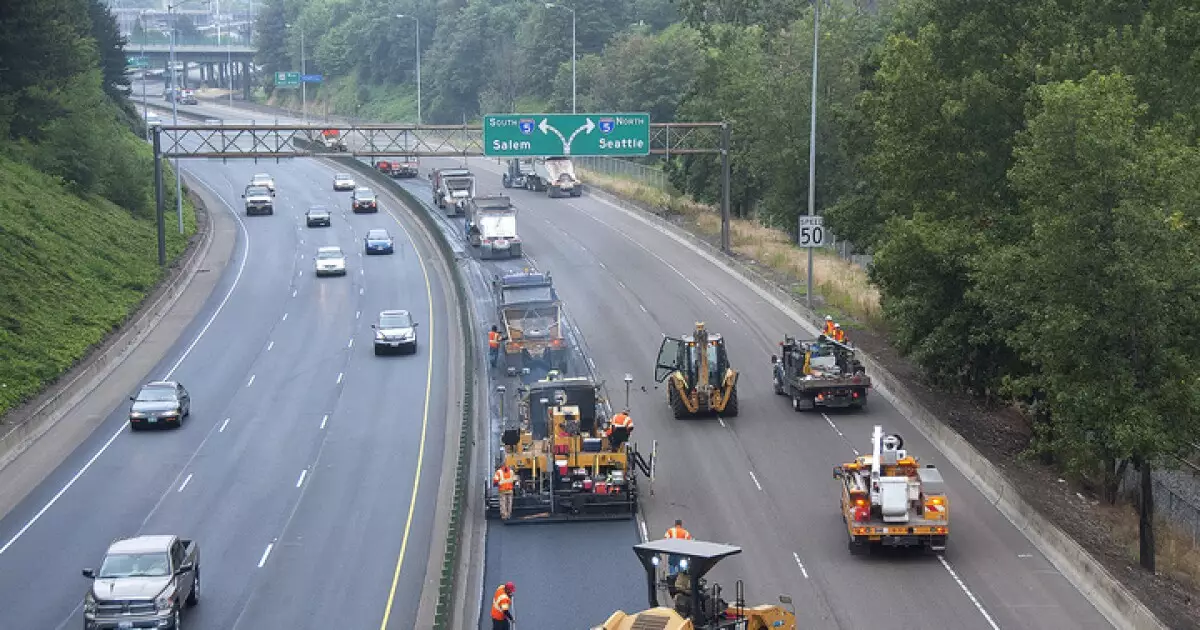The recent passage of Oregon’s House Bill 2025 has ignited a fierce debate surrounding the state’s transportation infrastructure funding. With a staggering price tag of $14.6 billion over the next decade, the bill has been touted by its Democratic supporters as a much-needed investment in the deteriorating state of Oregon’s roads and bridges. However, a closer examination reveals alarming implications that cannot be overlooked. While proponents like Sen. Chris Gorsek, co-chair of the Joint Committee on Transportation Reinvestment, paint a rosy picture of smoother roads and safer transit, the realities of such a monumental tax and fee increase beg a more critical assessment.
The bill’s promise to allocate emergency funding for winter snow removal is certainly commendable. However, the necessity of $19 million in emergency funding in late 2023 highlights a systemic failure that merely throwing money at the issue may not rectify. The state’s existing transportation infrastructure has suffered from years of negligence, and the idea that an influx of cash will magically resolve these problems suggests a fundamental misunderstanding of long-term fiscal responsibility.
Democratic Strategy and Controversial Moves
To garner support for this behemoth tax proposal, Democratic leaders resorted to questionable tactics, including removing dissenting committee members to ensure passage within the Joint Transportation Reinvestment Committee. This move raises eyebrows not only for its implications on governance but also for the democratic process itself. By sidelining voices of concern, the majority party appears to prioritize their agenda over public opinion, an action that could breed resentment among constituents who feel unheard.
Critics, including Republican Rep. Shelly Boshart Davis, have rightfully questioned the motivations behind House Bill 2025, characterizing it as a “scheme” designed to fulfill a “transportation tax wish list” pushed by Salem Democrats. With polls indicating that 61% of Oregonians oppose the bill, it is crucial to scrutinize whose interests are truly being served. This situation offers a stark reminder: when the needs of the few outweigh the demands of the many, democracy falters.
The Republican Counter-Proposal
Interestingly, the Republicans have provided an alternative that aims to keep taxes in check while still addressing transportation needs. Their proposal suggests repurposing climate relief funding to maintain and improve infrastructure without raising additional taxes. While certainly not without its own flaws, this pathway emphasizes a level of fiscal conservatism that many in Oregon crave amidst concerns over overreach in government spending.
The Republican plan may not solve all the problems overnight, but it represents a more pragmatic approach rooted in restoring trust within the Oregon Department of Transportation (ODOT). Many citizens are rightfully frustrated that they are being asked to pay more for services that should already be performed efficiently. The fundamental rift currently showcased in the legislature should thus be seen as an opportunity for lawmakers to engage genuinely with their constituents.
The Responsibility of Governance
At the core of this debate lies a critical issue: the responsibility of government to its citizens. Oregonians desire effective use of their tax dollars, not more burdensome taxes. Forcing residents to dig deeper into their pockets under the guise of infrastructural improvement can feel like a breach of trust, especially when past promises of accountability from government entities like ODOT have often been met with disappointment.
Governments must remember that funding does not automatically equate to effectiveness. The past record of budget mismanagement has left many questioning why they should be further coerced into funding that may lead to more wasteful spending. A transformation of the current system that encourages transparency, accountability, and results is what should be sought—not simply more revenue.
A Call for Dialogue
In this ongoing struggle over Oregon’s transportation future, what is abundantly clear is the need for a meaningful dialogue that considers the perspectives of all stakeholders. Both sides of the aisle must find common ground to address the infrastructure challenges facing the state while respecting the hard-earned dollars of its citizens. By fostering an environment of respect and teamwork, lawmakers could work toward solutions that genuinely serve the people rather than appeasing partisan ambitions. The real question remains—will Oregon’s leaders choose to listen to their constituents, or will they drive their agenda forward at the expense of public support?


Leave a Reply